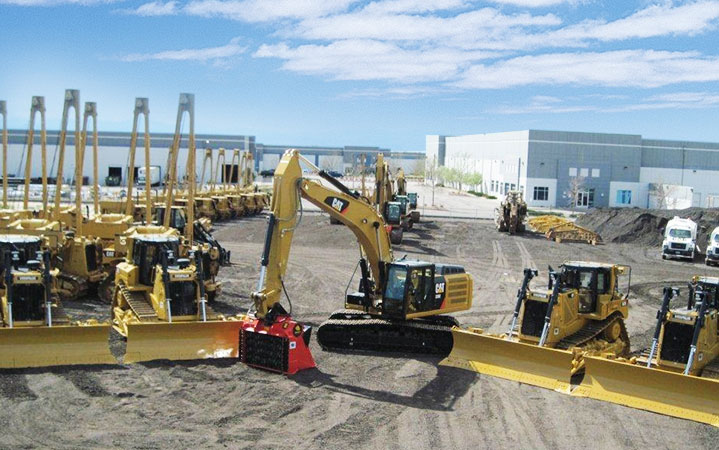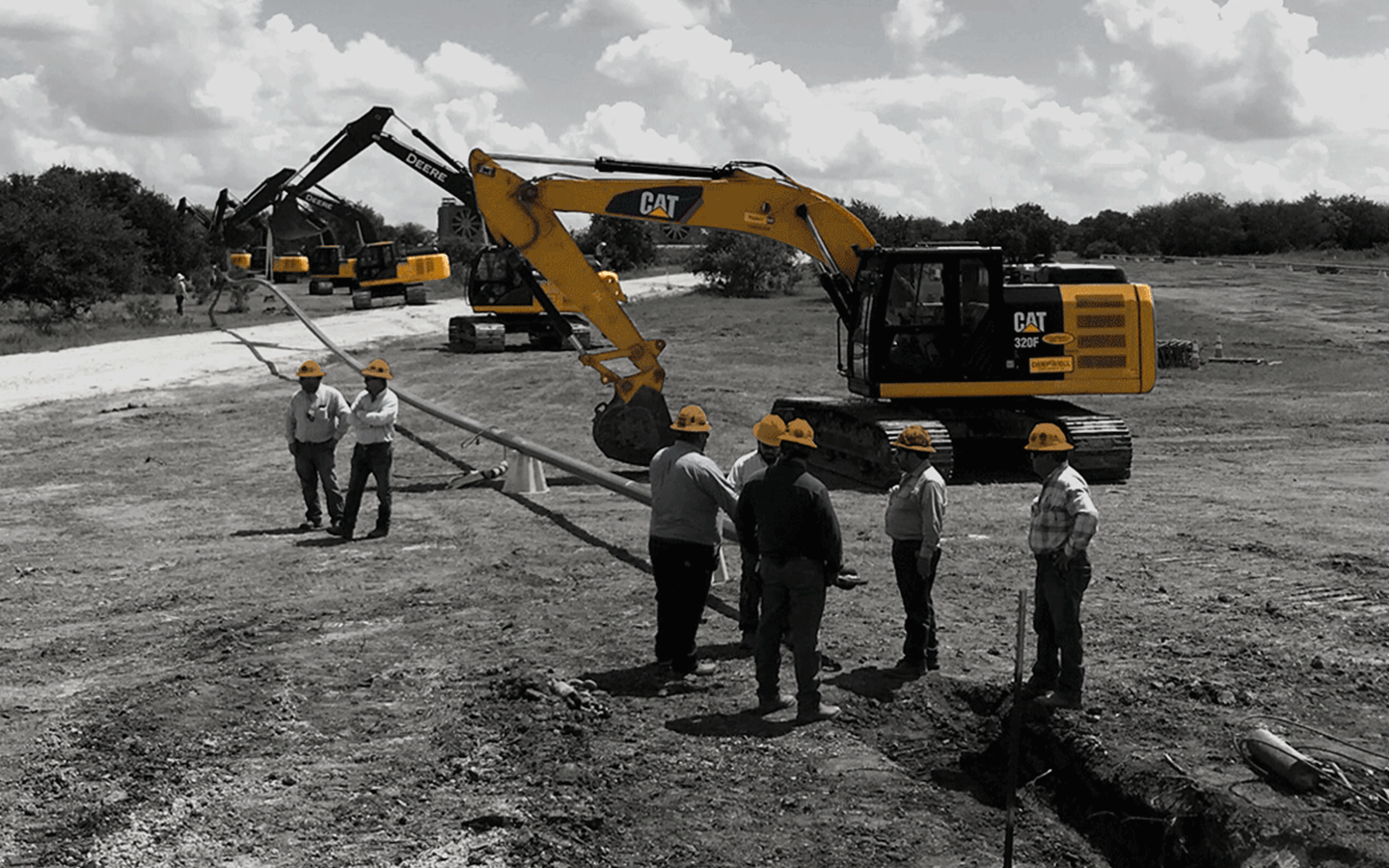Superior Rentals Contact: how it ensures reliability
A Comprehensive Overview to the Numerous Sorts Of Oil Field Equipment and Pipeline Equipment Available
The oil and gas market counts heavily on specific tools for efficient extraction and transportation. Numerous kinds of machinery, from drilling rigs to tank, play vital functions in this complicated procedure. Each tool serves unique features that contribute to overall functional success. Recognizing these components is necessary for any person associated with the market. As the sector evolves, so as well do the modern technologies that sustain it. What advancements are on the horizon?

Drilling Rigs: The Foundation of Oil Exploration
Drilling rigs act as the necessary machinery in the domain of oil exploration, enabling companies to accessibility hydrocarbon books hidden deep underneath the Earth's surface area. These rigs come in numerous types, consisting of land rigs, offshore rigs, and mobile systems, each designed to run in specific settings. Geared up with innovative innovation, piercing rigs can penetrate geological developments with precision, making certain efficient source extraction. The architectural integrity and operational capacities of these rigs are vital, as they must stand up to severe conditions and considerable stress. The choice of a boring gear influences the overall job expense and timeline, making it an important consideration for oil business looking for to maximize their exploration efforts and take full advantage of performance in their procedures.
Pumps: Important for Fluid Motion
In the oil removal procedure, the duty of pumps is substantial, facilitating the movement of fluids throughout different stages of manufacturing. Pumps are crucial for transferring petroleum, water, and other fluids from below ground tanks to the surface area and after that via pipes to refineries. They come in various types, consisting of centrifugal, positive displacement, and submersible pumps, each serving certain objectives based upon the liquid attributes and functional demands. Centrifugal pumps are generally made use of for their efficiency in high-flow applications, while positive displacement pumps master dealing with viscous fluids. The choice of pump impacts overall efficiency, operational safety and security, and upkeep costs. Proper selection and maintenance of pumps are vital for optimizing manufacturing and lessening downtime in oil area operations.
Valves: Managing Circulation and Pressure

Valves play an important function in managing the circulation and stress of fluids within oil areas and pipelines. Different sorts of shutoffs serve distinctive applications, each developed to accomplish certain functions essential for efficient procedure - Superior Oilfield Rentals. Comprehending the characteristics and usages of these shutoffs is vital for optimizing system efficiency and safety and security
Sorts of Valves
Essential parts in oil field procedures, shutoffs play a crucial function in managing the circulation and stress of fluids within pipelines and devices. Different kinds of valves are utilized to satisfy the varied demands of oil and gas manufacturing. Common types include gate valves, which supply a straight-line circulation and marginal stress decline; globe valves, understood for their strangling abilities; and sphere shutoffs, identified for their fast on/off control. In addition, check shutoffs protect against heartburn, while butterfly shutoffs supply a light-weight solution for regulating circulation. Each shutoff kind is created with certain products and setups to stand up to the extreme problems commonly discovered in oil areas, making sure dependability and effectiveness in operations. Comprehending these types is critical for effective system monitoring.
Valve Applications and Features
While different kinds of valves serve distinct objectives, their key applications focus on managing flow and stress within oil and gas systems. Shutoffs such as entrance, globe, and round shutoffs control fluid movement, ensuring peak efficiency and security. Gate valves are generally used for on/off control, offering minimal flow resistance. World shutoffs, on the other hand, offer specific circulation policy, making them suitable for strangling applications. Sphere valves are favored for their fast procedure and limited sealing capacities. In enhancement, pressure alleviation shutoffs are crucial for preventing system overpressure, guarding devices stability. Overall, the ideal option and application of valves boost functional efficiency, making certain the trustworthy transport of oil and gas via pipes and processing facilities.
Compressors: Enhancing Gas Transportation
Compressors play a crucial duty in the effective transportation of gas, guaranteeing that it moves smoothly through pipelines over fars away. These tools enhance the stress of gas, allowing it to get over friction and altitude changes within the pipeline system. Furthermore, compressors help with the balancing of supply and demand, suiting variations in consumption and manufacturing prices. Different sorts of compressors are employed in the sector, consisting of centrifugal, reciprocating, and rotary screw compressors, each offering distinctive advantages based on the functional requirements. Routine upkeep of these compressors is necessary to take full advantage of performance and minimize downtime, eventually adding to a dependable gas transportation network. Their essential function highlights the relevance of compressors in the overall oil and gas framework.
Storage Tanks: Safe and Effective Fluid Monitoring
Reliable transportation of gas counts on various support group, among which is the correct management of tank. These tanks play a necessary duty in securely having liquids, making sure that functional effectiveness is preserved while lessening environmental threats. Constructed from durable materials, they are made to withstand high stress and harsh aspects. Appropriately sized and tactically located, tank assist in the smooth flow of gas and other directory liquids, stopping bottlenecks in supply chains. Regular upkeep and surveillance are imperative to identify leakages or structural issues, advertising security and compliance with governing requirements. Eventually, the effective monitoring of tank is critical for the total stability and reliability of the oil and gas industry's liquid handling systems.
Pipeline Systems: Framework for Transport
Pipeline systems act as the foundation of the oil and gas market, facilitating the reliable transport of hydrocarbons over large ranges. These systems contain numerous elements, including pipelines, valves, pumps, and compressors, all diligently developed to assure smooth flow. The materials made use of in pipeline building, frequently steel or high-density polyethylene, are picked for longevity and resistance to rust. Pipeline networks can cover across land and water, attaching production sites to refineries and warehouse. Furthermore, progressed innovation makes it possible for real-time monitoring of circulation prices and pressure levels, boosting functional effectiveness. The strategic placement of these pipes minimizes environmental effect while making best use of resource access, consequently playing an important function in conference power needs globally.
Security Equipment: Making Sure Employee and Environmental Management
The operation of pipeline systems, while crucial for power transportation, also provides considerable security difficulties for employees and the setting. Safety equipment plays a significant function in reducing these dangers. Personal safety devices (PPE) such as headgears, handwear covers, and non-slip shoes safeguards employees from physical dangers. In addition, gas discovery systems keep an eye on for leakages, making sure that unsafe materials do not posture a threat to employees or the bordering ecological community. Emergency situation closure systems are essential for quickly stopping procedures throughout a dilemma, avoiding potential disasters. Spill control products, including absorbents and barriers, are basic for reducing ecological impact. On the whole, buying all-inclusive safety equipment is critical for preserving operational stability and shielding both workers and the environment in the oil and gas sector.

Frequently Asked Inquiries
How Do I Select the Right Oil Field Equipment for My Task?
Picking the ideal oil field devices entails evaluating job specs, spending plan cheap backhoe for sale constraints, and operational requirements. Think about aspects such as tools reliability, compatibility with existing systems, and the provider's track record to assure peak efficiency and safety and security.
What Are the Maintenance Requirements for Oil Field Equipment?
Maintenance demands for oil field devices include routine assessments, lubrication, and more info here prompt fixings. Operators ought to likewise adhere to maker guidelines, screen performance metrics, and assurance compliance with security laws to boost long life and performance.

How Can I Make Certain Compliance With Environmental Rules?
To ensure conformity with environmental laws, business have to carry out normal audits, execute ideal methods, purchase training, maintain correct documentation, and stay upgraded on legislation (Superior Rentals reviews). Collaboration with environmental companies can additionally enhance adherence to guidelines
What Is the Ordinary Lifespan of Pipeline Equipment?
The typical life-span of pipeline equipment normally varies from 20 to 50 years, depending upon aspects such as worldly quality, environmental conditions, and upkeep practices. Routine assessments can greatly influence longevity and operational effectiveness.
Just how Do I Securely Transport Oil Field Equipment to Remote Locations?
Transferring oil area tools to remote areas calls for careful planning, including route assessment, protecting licenses, making use of suitable cars, and making sure safety and security methods are adhered to. Correct training and interaction amongst teams are crucial for successful transportation.